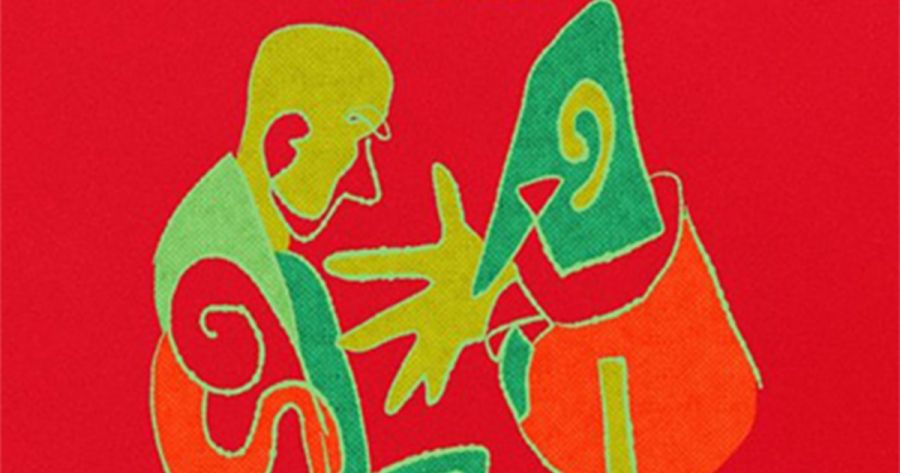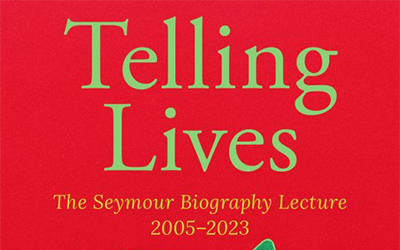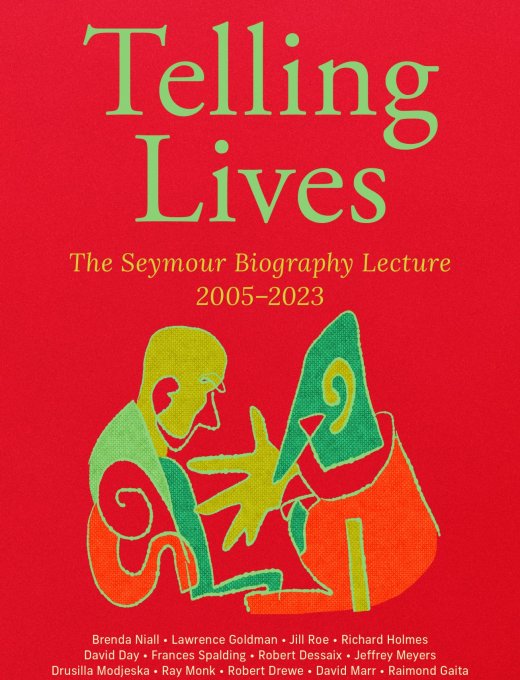
- Free Article: No
- Contents Category: Literary Studies
- Review Article: Yes
- Article Title: That blue river
- Article Subtitle: Eminent lectures on biography and life writing
- Online Only: No
- Custom Highlight Text:
In her Preface to Telling Lives, editor Chris Wallace invites the reader to join a thought experiment: a group of biographer-refugees, driven by earthly global warming to reside on planet Alpha Centauri, ask themselves: ‘Did biographers play a role in the downfall of Homo sapiens on Earth?’ Were they, in other words, complicit in the culture of disinformation that contributed to global catastrophe? Writing in the ‘post-truth era’, Wallace highlights the centrality of truth in what has traditionally been termed the ‘biographical contract’.
- Featured Image (400px * 250px):

- Alt Tag (Featured Image): Richard Freadman reviews ‘Telling Lives: The Seymour Biography Lecture 2005-2023’ edited by Chris Wallace
- Book 1 Title: Telling Lives
- Book 1 Subtitle: The Seymour Biography Lecture 2005-2023
- Book 1 Biblio: National Library of Australia, $34.99 pb, 233 pp
- Book 1 Cover Small (400 x 600):

- Book 1 Cover (800 x 1200):

Such contracts are, however, not unconditional. Readers who conclude that a given life-writing narrator is unreliable may, metaphorically, shred the contract. Frances Spalding’s detailed essay, ‘The Biographical Contract’, helpfully expands the collection’s discussion of life-writing contracts to include legally binding ones, and forms of recourse available to those who seek release from such agreements.
Life-writing contracts entail various forms of ethical responsibility. In the case of biography, principal among these is the attempt to present the most truthful possible account of the subject. This, according to political biographer David Day, will necessarily involve invasions of privacy in the public interest; Marr even contends that ‘none of us owns our own life’. Telling Lives shows how deeply intertwined are the ethical sensitivities involved in knowing other people and the narrative techniques – received and innovative – for bringing them to life on the page.
Without wanting to promulgate biographical ‘rules’, Marr, biographer of Patrick White, suggests that biographers should abjure intrusive narrative commentary that tries to ‘chaperone’ the relationship between reader and the biographical subject. So far as possible, he wants to allow subjects to self-disclose through the medium of the biographer’s research. Ray Monk, biographer of Ludwig Wittgenstein and Bertrand Russell, shares Marr’s misgivings about chaperoning. Similarly, he does not favour biographical attempts to reconstruct subjects’ ‘interior monologue’, the supposed inner discourse of their consciousness. Rather, following Wittgenstein, he orders biographical details in pursuit of a specific ‘point of view’ on the subject. Raimond Gaita’s moving meditation on his memoirs and mentors affirms the Platonic principle of knowing others through love. He suggests, too, that the inner lives of people, insofar as they can be ascertained, should be rendered in linguistic repertoires that characterise their consciousnesses.
Richard Fidler, whose essay takes the volume into the domain of radio interviews, strikingly observes that ‘human fallibility is built into the texture of the human voice, much more so than on the authoritative page’. In her fine reflections on political biography, Judith Brett cites Richard Holmes in stressing the biographical importance of the miscellaneous, often unconscious, achronological ‘interior time’ that passes in a biographical subject’s mind. This is in fact compatible with the ‘narrative drive’ that Monk requires of biography.
But what if a biographer comes to dislike their subject, or harbours strongly ambivalent feelings about them all along? Monk, in one of this volume’s memorable formulations, describes work on his biography of Russell as increasingly having ‘to pick one’s way through a kind of history of emotional wreckage’. Jacqueline Kent confesses in her essay to becoming ‘very angry’ at the behaviour of one of her biographical subjects, Hephzibah Menuhin (sister of Yehudi). But should the biographer express disapproval in the text? Spalding alludes to Fiona MacCarthy’s conundrums as biographer of legendary English sculptor and typographer, Eric Gill, a man whose sex life was bound to cause acute consternation if revealed to the public.
Let’s not forget the complex investment that living subjects can have in choosing their biographers. As Marr deliciously reports of Patrick White: ‘He hoped for a few last cluster bombs thrown at the establishment, and he looked forward eagerly to being around to enjoy mayhem at the book’s publication.’
Biographical sleuthing comes in many moral hues, too, as in Brenda Niall’s subtle description of the tact she had to exercise in bringing to light a confronting family secret when researching her biography of Martin Boyd. The prolific Jeffrey Myers, on the other hand, is refreshingly frank about the ‘thrill of the chase’ involved in biographical research, not least when spilling the beans on ‘sexual secrets’, as he does here in respect of mistresses of famous male writers.
This collection includes highly informative discussions of the history and cultural status of biography. Lawrence Goldman argues that modern biographical databases constitute a form of ‘electronic hubris’ by comparison with older, more culturally inflected biographical dictionaries. Jill Roe makes persuasive use of the Australian Dictionary of Biography in explicating the role of ‘bush intellectuals’ in ‘the struggle for the soul of Australia’. Holmes remarks on the close and inevitable links between bio-graphy and stories of national identity.
Not a lot is said about prose style in these pages, but the stylistic pizzazz of memoir-novelists Robert Drewe and Robert Dessaix is a feature. The latter’s contribution is particularly striking for its breadth of cultural reference and its superb, unsettling, latter-day modernist metaphors of hollowness and emptiness. There is a tension between these and the volume’s general endorse-ment of the centred liberal self.
Other themes canvassed in this generally liberal humanist collection include: discursive domains of biography (literary, political, scientific, and other); famous and lesser-known (but perhaps still ‘telling’) narrated lives; living or dead biographical subjects; authorised and unauthorised biographies; life writing as art; life writing’s narratives of failure (not just success) and boredom (not just rich engagements with the world); writing the past; jostling or conflicting commitments in life-writing texts; their myriad formal properties and axes of structural experimentation. For several of these biographer-essayists, Boswell’s magisterial The Life of Samuel Johnson remains the greatest exemplar of the craft.
Despite occasional mentions, Telling Lives does not generally engage with anti-humanist life-writing theory or practice; for instance, deconstructive critiques of the liberal humanist self, or political accounts of the ideological construction of notions of ‘truth’; nor poststructuralist scepticism about the powers of language. The exception here is Drusilla Modjeska’s account of setting out to write about the Ömie barkcloth artists of Papua New Guinea, not least the ‘under-recorded lives of women’. Try as she might to write in an authentic observer-voice, she is impeded by the ‘inequality between the white narrator and the post-colonial subject’. It is not until she switches from life writing to fiction that the ‘post-colonial policeman who’d been standing duty over my desk vanished’. Fiction, she finds, is best suited to yield the ‘informed imagination’ needed to address such cultural alterity. It is an arresting but intensely personal finding.
Contributors to volumes of essays are perhaps too readily claimed to be ‘eminent’; but in the case of Telling Lives, it really is the case, and the volume is consistently accessible, authoritative and enjoyable.
Modjeska concludes her essay by quoting James Wood’s image of ‘that blue river of truth, curling somewhere’. It’s a lovely formulation for life writing and so much else.
Many of the lectures mentioned in this article were first published in ABR, which had a long association with the Seymour Biography Lecture. These are all available online.


Comments powered by CComment